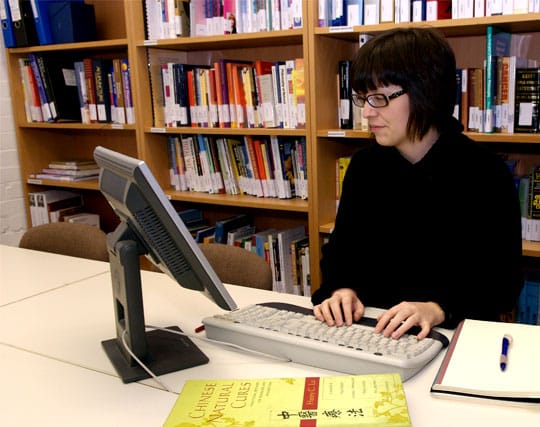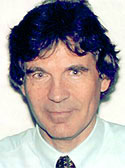What is Naturopathy?
What is a Naturopath?
A Naturopath is a health practitioner who applies natural therapies. Her/his spectrum comprises far more than fasting, nutrition, water, and exercise; it includes approved natural healing practices such as Homeopathy, Acupuncture, and Herbal Medicine, as well as the use of modern methods like Bio-Resonance, Ozone-Therapy, and Colon Hydrotherapy. At a time when modern technology, environmental pollution, poor diet, and stress play a significant role in the degradation of health, a Naturopath’s ability to apply natural methods of healing is of considerable importance.
Frequently, a Naturopath is the last resort in a patient’s long search for health. Providing personalised care to each patient, the naturopath sees humankind as a holistic unity of body, mind, and spirit.
Using a range of alternative methods of diagnosis, a Naturopath can often successfully pin-point a predisposition in the body, before the onset of acute disease, and treat the patient with specific therapies and changes in the patient’s lifestyle.
A Naturopath usually practices in a freelance environment, with the option to work in hospitals, spas, research, health care, administration, management in the retail industry, or in the media. One can find a Naturopath in a nutritional and family consultancy, as well as in a Beauty Clinic. Specialisation in infertility, skin problems, sports, children, or geriatrics is possible. The growing acceptance of Naturopathy world-wide, and greater movement and communication within the European Union offers a wealth of opportunities for future professional and personal development.
The Origins of Naturopathy
The principles of Naturopathy were first used by the Hippocratic School of Medicine in about 400 BC. The Greek philosopher Hippocrates believed in viewing the whole person in regards to finding a cause of disease, and using the laws of nature to induce cure. It was from this original school of thought that Naturopathy takes its principles.
- The healing power of nature – nature has the innate ability to heal
- Identify and treat the cause – there is always an underlying cause, be it physical or emotional
- Do no harm – a Naturopath will never use treatments that may create other conditions
- Treat the whole person – when preparing a treatment plan, all aspects of a person’s being are taken into consideration
- The Naturopath as a teacher – a Naturopath empowers the patient to take responsibility for his/her own health by teaching self-care
- Prevention is better than cure – a Naturopath may remove toxic substances and situations from a patient’s lifestyle to prevent the onset of further disease
 From Steven Langley’s ‘Naturopathy Workbook’
From Steven Langley’s ‘Naturopathy Workbook’
Naturopathy, or Nature Cure, is underpinned by a fundamental principle – vis medicatrix naturae – the healing power of nature. This was made clear twenty-five centuries ago when Hippocrates said Health is the expression of a harmonious balance between various components of man’s nature, the environment and ways of life – nature is the physician of disease.
Man was part of nature and the universe, and health was achieved by living in accordance with this principle. Harmony was fostered with proper nutrition, water treatments, rest, sunshine and fasting. Medicine, religion and science were intimately related and man was seen as a whole – a physical, mental, emotional and spiritual being.
The same vital force or chi (qi) that made up the universe and nature flowed through man and it was his dislocation from this source that caused illness. Early Naturopaths realised that if you could restore the vital force to the patient, the body would naturally heal itself.
The body has this capacity to heal itself if given the right conditions and naturopathy, along with acupuncture, homoeopathy, herbal medicine, and most other holistic modalities subscribes to this basic understanding of the body’s own innate intelligence.
Modern day Naturopathy
Modern orthodox medicine, apart from all its positive and beneficial attributes, does not subscribe to this idea of wholism or to the importance of prevention.
As long ago as the second century BC, the Yellow Emperor, in the Classic of Internal Medicine, said A doctor who treats a disease after it has happened is a mediocre doctor..a doctor who treats a disease before it happens is a superior doctor.
Indeed Chinese physicians were paid to keep their patients healthy and were either dismissed or not paid if the patient became ill.
This ensured a health system, not an ill health system, as we know it. Unfortunately this understanding has changed to a new paradigm-wait until it is broken and then fix it.
This is not intelligent medicine and part of a Naturopath’s role is empowering the patient to take responsibility for his or her own health. This is not always an easy task amid a hostile environment of toxins and chemicals.
Challenges
The modern day Naturopath faces many more challenges than those of their forefathers. Most of us now live in a sea of electromagnetic pollution, coupled with a plethora of chemical pollutants which were completely alien to man 40 years ago. Add to this a dose of denatured food fast-tracked by technology and we have a heady mix of health problems waiting to happen.
In short most people have too much of what they shouldn’t have in their bodies and not enough of what they should have. The Naturopath of today needs a very eclectic approach to meet these challenges and guide their patients back to vibrant health. Whilst never losing sight of the basic fundamentals of the naturecure, the modern-day Naturopath might employ a raft of skills such as herbs, homoeopathy, manipulation, flower essences, acupuncture or biochemical supplementation to augment their work.
These may be necessary to offset many of the suppressions brought about through living in our modern times with all its concomitant stresses that seek to strangle the life force in our bodies. – Steven Langley MSc, ND, DipHom, DBM, DipAc, OMD.
What does a treatment consist of?
An initial consultation with a Naturopath normally takes about an hour. During this time the Naturopath will ask questions about the person’s condition, medical history, diet and lifestyle, and any conventional treatments that they may be taking. The consulting Naturopath may then use Iridology (looking into the iris), or tongue and nail diagnosis to get a better picture of the complete health state of the client. If needed, pathology testing such as hair, stool, or blood analysis may be recommended.
Once all of the information is gathered, a treatment plan is formulated that addresses all areas of the person’s life, providing the body with the optimum chance to heal itself. The treatment plan may include advice on diet, lifestyle, exercise, herbal medicine, homeopathic treatments, or other suitable remedies. A Naturopath may also refer the client to other practitioners as part of an integrated health care approach.

Where can I train as a Naturopath?
The College of Naturopathic Medicine is one of the UK and Ireland’s largest, highly-respected, and well-known naturopathic training providers.
- Students may study in Ireland in Dublin, Cork and Galway
The CNM is dedicated to training successful and qualified practitioners, with courses fully recognised by the relevant regulating bodies. For more information, or to receive a prospectus, please call 01 878 8060, or contact us today.

 From Steven Langley’s ‘Naturopathy Workbook’
From Steven Langley’s ‘Naturopathy Workbook’


